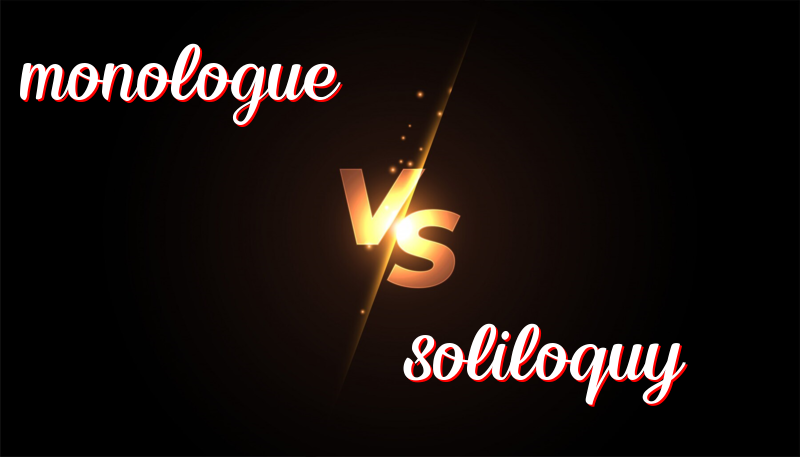Talking to Others vs. Talking to Yourself
Monologue vs Soliloquy
Today, we will learn about the words “monologue” and “soliloquy”. These words sound fancy, but they are important in plays and stories.
History
The word “monologue” comes from two Greek words. “Mono” means “one” and “logue” means “speech”. So, monologue means “one person speaking”.
The word “soliloquy” comes from Latin. “Soli” means “alone” and “loqui” means “to speak”. So, soliloquy means “speaking alone”.
How to Use Them
Monologue
A monologue is when one person is giving a long speech. Often, there are other people around listening. This is common in plays or movies.
Soliloquy
A soliloquy is when one person is speaking their thoughts out loud. They think they are alone. This helps the audience understand what the character is thinking.
Trick to Remember the Difference
To remember the difference, think “mono” means one person talking to others, and “soli” means one person talking to themselves.
Examples
Monologue
- The teacher gave a monologue about the lesson.
- In the play, the king’s monologue told the people his plans.
- During the movie, there was a long monologue that explained the hero’s past.
- The comedian’s monologue made everyone laugh.
- The student read a monologue from a famous book.
Soliloquy
- Hamlet’s famous soliloquy is “To be, or not to be.”
- The character spoke in soliloquy about her fears.
- In the empty room, he did a soliloquy about his dreams.
- The soliloquy showed what the character truly felt.
- She practiced her soliloquy in front of the mirror.
Summary
A monologue is a long speech by one person to others. A soliloquy is a long speech by one person to themselves. Remember: “mono” means one to others, “soli” means one to themselves.

Leave a Reply
You must be logged in to post a comment.